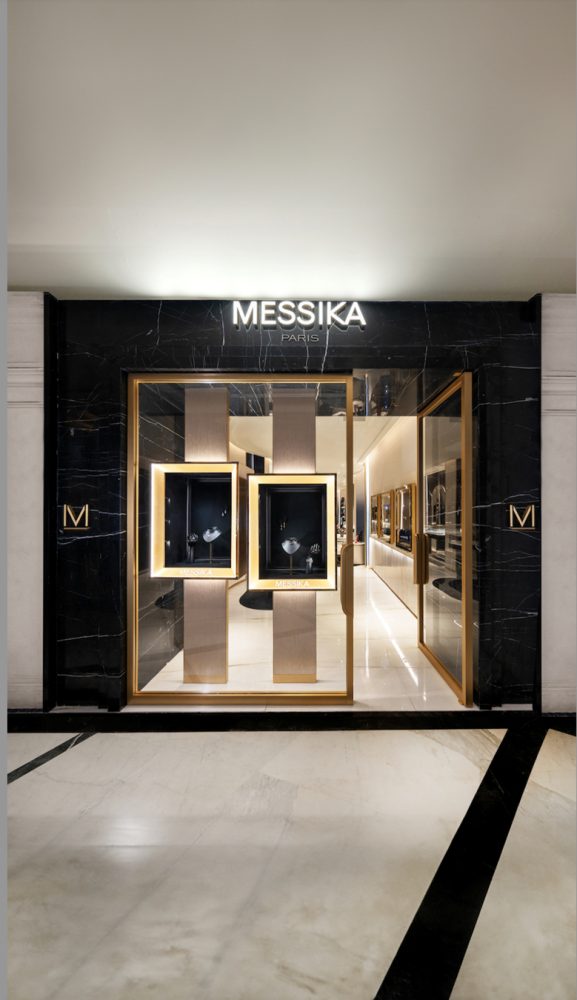With growth slowing across major global markets amid persistent geopolitical and economic headwinds, leading international jewellery brands are turning their focus to India. Buoyed by its steady economic progress and a rising affluent class, the country is fast emerging as a critical market for future expansion. Shilpa Dhamija examines the entry and expansion strategies of several global players as they seek to establish a foothold in a market, traditionally dominated by domestic players.
While post-covid recovery has been challenging globally, India has continued to make steady economic progress despite facing recurring obstacles like cross-border tensions and trade-tariff uncertainties. In fact, the country has been setting new milestones with its economic progress. This year, India surpassed Japan to become the world’s fourth largest economy. It is also on track to be the world’s fastest growing major economy for two consecutive years with a projected GDP growth of 6.7% in both FY26 and FY27, according to World Bank data.
What makes India’s economic growth particularly attractive to global retail and luxury conglomerates is that it is underpinned by strong domestic consumption. At the same time, India is seeing an accelerated growth of its affluent population making it an attractive market for high-ticket products. The number of individuals in India earning $10,000 and more is forecast to grow to 100 million by 2027. India also currently boasts the third largest population of billionaires in the world.
India Dominates Gold Jewellery Consumption, Trails Only the U.S. in Diamond Jewellery Sales.
Last year, India surpassed China, to become the world’s largest consumer of gold jewellery. While China recorded approximately 511 tonnes of gold jewellery consumption, India’s consumption was higher, at 564 tonnes, according to World Gold Council figures. Although India’s jewellery market remains dominated by gold, it is also generating significant demand in the diamond jewellery segment; India is now the second-largest market globally, trailing only the US. According to some reports, India’s domestic diamond market is valued at $8.7 billion and is expected to double to nearly $17 billion by 2030.
In the past 3 years, several renowned global players have either expanded their presence or made their first moves into India’s growing jewellery market to capitalise on the evolving global sensibilities and shifting buyer preferences.
Earlier this summer, Paris-based jewellery brand, Messika, opened its first store in New Delhi, in partnership with India’s largest luxury watch retail chain – Ethos Watches Ltd. Located in the upscale Chanakya Mall, the 68-square-metre boutique marks a notable entry for the brand in the Indian market. “Making a debut in India has always been a dream of mine,” Valérie Messika said as she announced her brand’s India entry on the occasion of its 20th anniversary. With Messika, Ethos marks its foray into the jewellery segment through a new dedicated business vertical, which aims to introduce more international jewellery brands in India over the next five years.

While Messika made a confident entry into India with a standalone boutique, other global brands are taking more measured and strategic steps as they assess the market. Renowned Swiss jewellery and watch maison, Chopard has been present in India for over a decade. While it has offered watches through multiple retailers, it has maintained only one point of sale for jewellery since 2022. To better understand a market defined by diverse tastes, Chopard has been hosting curated pop-up events across India’s metro cities. After evaluating consumer preferences and market dynamics, the brand plans to expand its jewellery presence in India to four points of sale by the end of 2025.
Following a similar approach, Richemont-owned Swiss jewellery and watch brand Piaget is taking measured steps into the Indian market. Piaget began selling jewellery in India in 2024, featuring a selection of special pieces at its first point of sale within TimeVallée, Richemont’s multi-brand luxury concept store in Mumbai’s Bandra district.
Italian jewellery brand, Bvlgari, owned by the world’s largest luxury conglomerate, LVMH, currently has 11 points-of-sales (POS) and 2 directly operated boutiques in India. Three of these were launched in the last 2 years. Bvlgari plans to add two more POS in the next two years. In an exclusive interview with Solitaire International, Jean-Christophe Babin, CEO of Bvlgari, expressed strong interest in accelerating the brand’s expansion in India’s thriving jewellery market, and emphasised an urgent need for the development of suitable retail infrastructure to support the rising interest of global jewellery brands in India.
Meanwhile, industry sources indicate that Richemont’s French maison Van Cleef & Arpels is expected to commence operations in India between 2026 and 2027, further underscoring the market’s expanding appeal to international luxury jewellery players.

